Afro hair is naturally curly and frizzy due to the tilt of the hair follicle as it grows. This unique texture reacts to hot and humid climates by becoming more prone to frizz.
Additionally, Afro-hair is more susceptible to dryness because it loses moisture quickly, making it even more challenging to manage. The hair grows at a rate of 0.5 to 1.5 cm per month, depending on how well it’s cared for.
To manage frizz, regular deep conditioning and moisturizing are essential for sealing the cuticles and keeping moisture locked in. Finger combing the hair while wet also helps detangle the coils and reduce frizz.
in this article, we will explore the causes of frizz in Afro hair, how to prevent it, and the best products to keep curls smooth and healthy.
Understanding Frizzy Hair and Its Causes
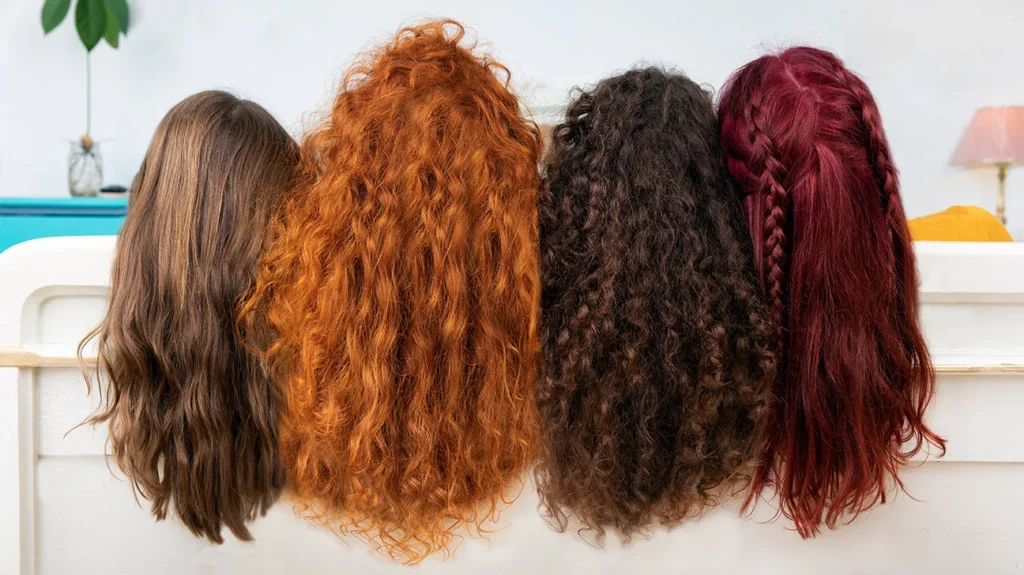
What Causes Frizz in Hair?
Frizz occurs when the hair lacks moisture. The strands absorb moisture from the surrounding air, disrupting the hair cuticle’s smoothness. Environmental factors, such as humidity, hair damage, and dryness, further intensify this issue.
- Humidity: Excess moisture in the air causes the hair cuticle to lift, leading to frizz.
- Hair Damage: Heat styling, chemical treatments, or harsh brushing can weaken the hair cuticle, causing it to lift and become frizzy.
- Dryness: When hair is dry, it becomes more porous and prone to frizz as it seeks moisture from the surrounding environment.
- Excessive Heat: Frequent use of heat tools strips hair of natural oils, leaving it dry and more susceptible to frizz.
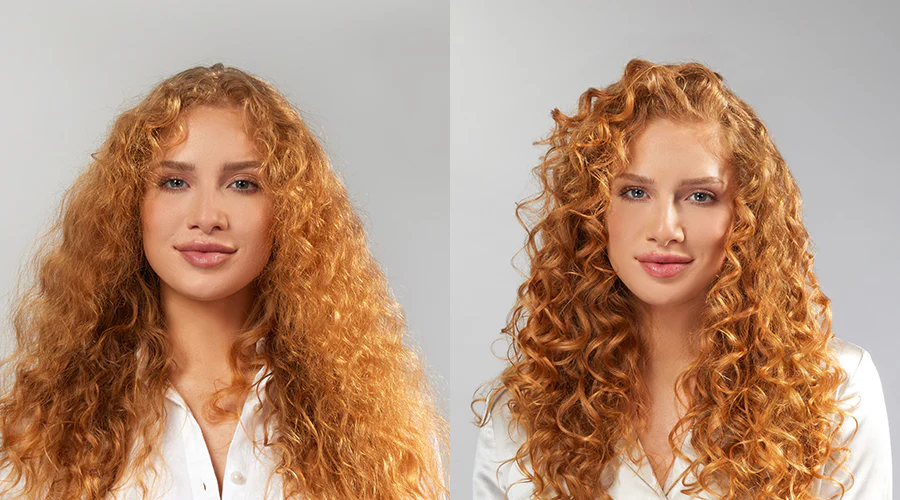
Curly (Type 3) and coil (Type 4) hair are more prone to frizz due to their texture, but frizz can occur in any hair type, just at different rates. Moreover, vigorous towel drying or brushing wet hair can damage the cuticle, worsening frizz.
Frizzy hair is often considered undesirable because it can make it look messy and unruly, leading many to search for ways to control it.
Understanding Frizzy Afro Hair
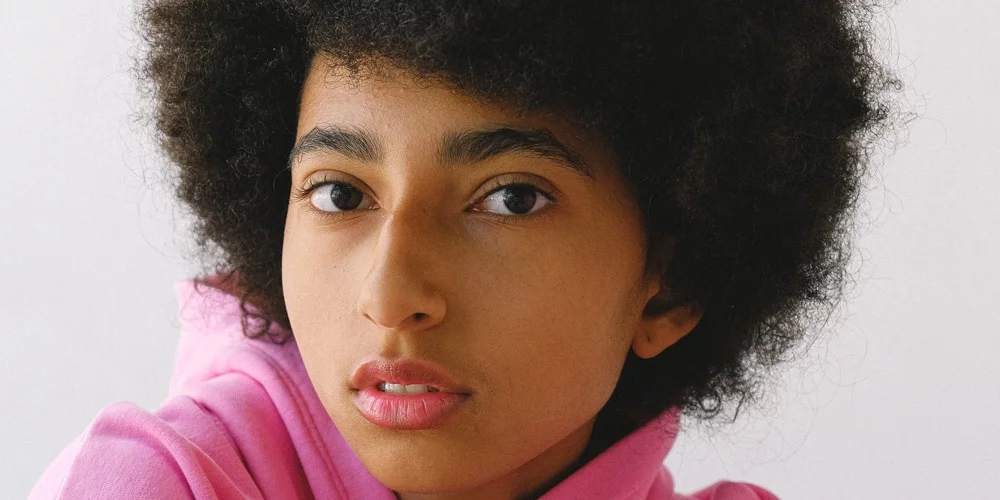
Due to its tightly curled or coiled texture, afro hair is naturally more prone to frizz. The natural oils produced by the scalp have difficulty travelling down the bends of the hair, leading to dryness and frizz.
Without proper moisture, the hair becomes more susceptible to breakage and split ends, worsening frizz.
- Hair Texture and Frizz Formation: Afro hair’s coarse and thick texture means it takes longer to dry, making it more prone to frizz, especially in humid conditions. The oils produced by the scalp struggle to travel the entire length, leaving the ends dry and frizzy.
- Moisture and Oils: Afro hair needs regular moisture to prevent frizz. Deep conditioning and hot oil treatments effectively restore moisture, reduce dryness, and improve flexibility, which helps prevent frizz and breakage.
Regular moisture, trims, and products are essential to keep Afro hair healthy and frizz-free.
How Humidity Affects Frizzy Hair
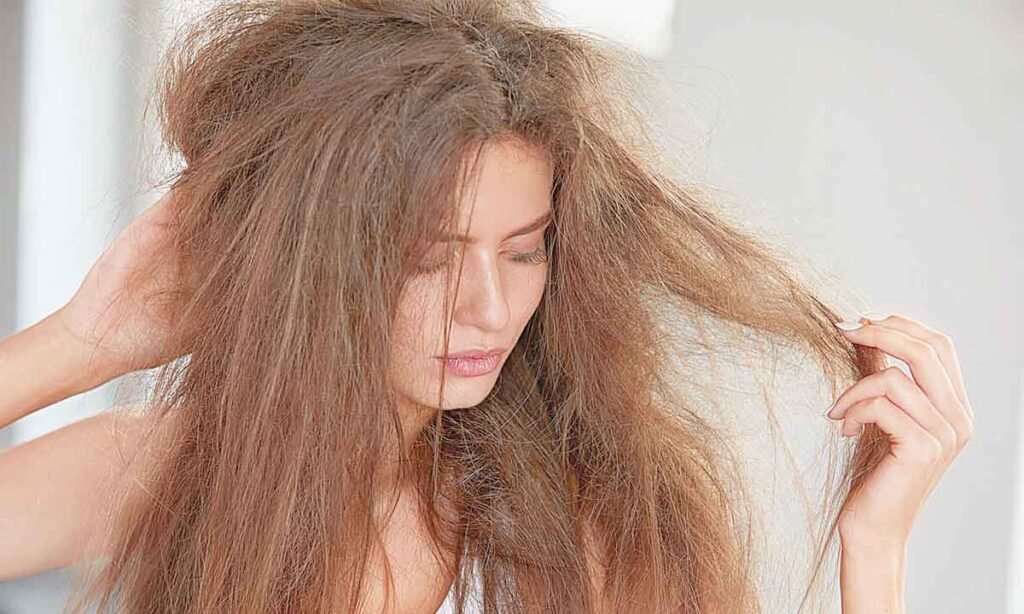
Humidity causes frizzy hair by introducing excess moisture into the hair shaft, lifting the cuticle, and disrupting the hair’s shape. High-porosity hair is especially prone to frizz, as its raised cuticle absorbs moisture more easily, leading to puffiness and loss of smoothness.
Curly and Afro hair types are naturally drier, and their oils take longer to travel down the hair shaft, making them more vulnerable to frizz in humid conditions. Damaged hair with open cuticles is even more susceptible to humidity’s effects. UV rays also contribute to frizz by drying out Afro hair, making it even more prone to puffing up in humid weather.
While air drying avoids heat damage, it can dampen hair for too long, weakening it and causing frizz. To manage frizz in humidity, use anti-frizz products, opt for protective hairstyles, and avoid direct sunlight exposure.
Solutions for Managing Frizz in Humid Weather
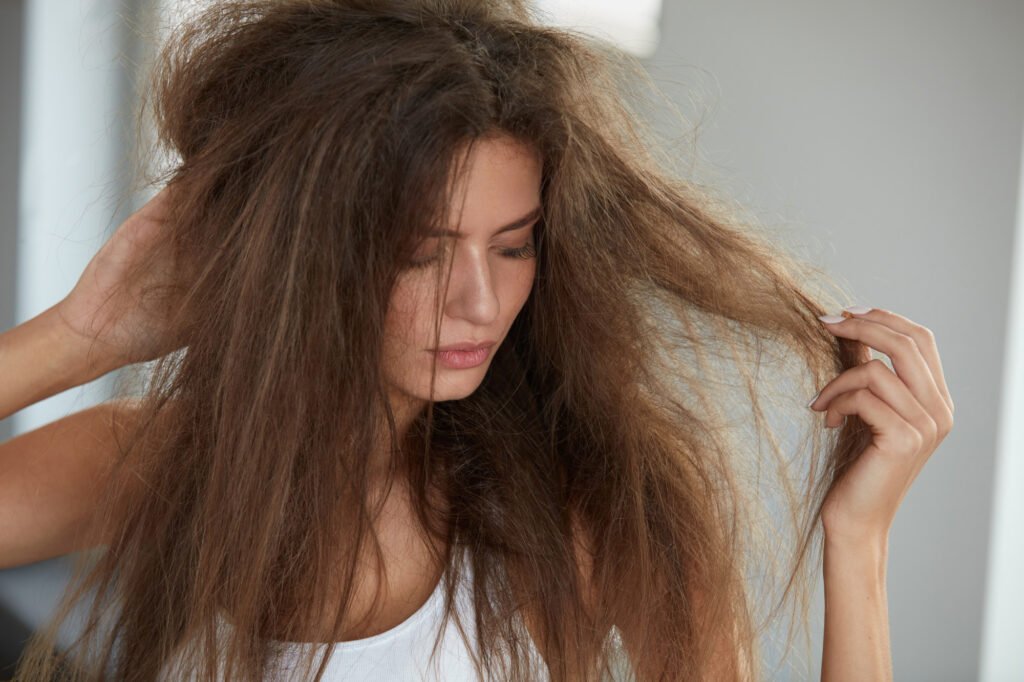
To prevent frizz in humidity, follow these effective strategies:
- Invest in anti-frizz serums and leave-in conditioners: These products provide essential moisture to your hair, keeping it smooth and manageable throughout the day.
- Try humidity-resistant hairstyles: Braids, buns, or ponytails help maintain your look and reduce exposure to the humidity that causes frizz.
- Apply a heat protectant: Using a heat protectant before styling shields your hair from heat damage that can exacerbate frizz in humid weather.
- Use hairspray and gel: These can help lock your style in place and reduce puffiness caused by moisture in the air.
- Add essential oils: Oils like argan or coconut oil can nourish your hair while protecting it against humidity-induced frizz.
- Revise your drying routine: Switch to air drying or use a blow dryer with a diffuser to reduce frizz. Avoid towel-drying, as it can rough up the hair cuticle.
- Buy frizz-combating shampoo and conditioner: These products are designed to hydrate, smooth, and create a protective layer to reduce frizz caused by humidity.
- Wash your hair less often: Over-washing can strip your hair of its natural oils, making it more prone to dryness and frizz.
Benefits of Anti-Frizz Products: Anti-frizz sprays and serums add moisture to the hair, smooth the cuticle, and reduce the potential for frizz, making your hair more manageable and protected from environmental factors like humidity.
Best Products for Frizzy Afro Hair and Humidity Control
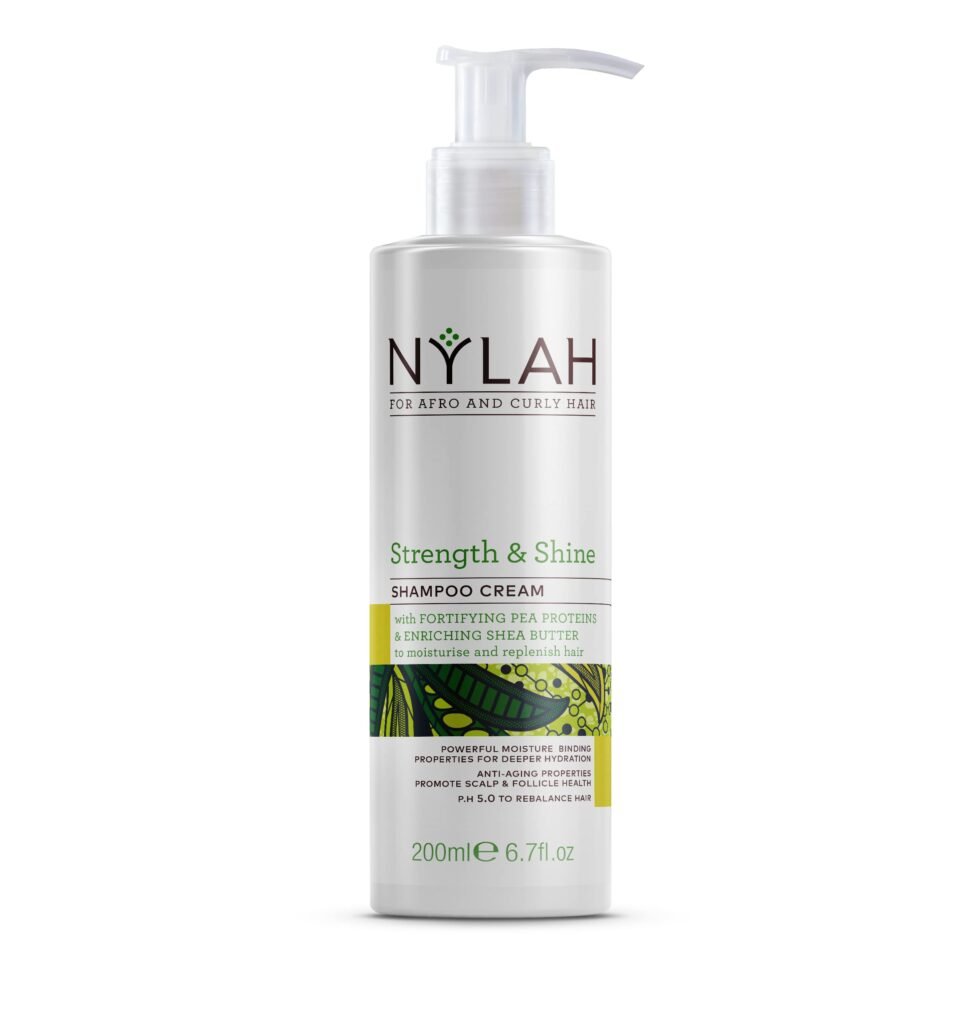
Shampoo & Conditioner:
- Nylah’s Strength and Shine Thickening Shampoo Cream – Nourishes the hair, providing essential moisture and strength.
- Super Botanicals Restorative Conditioner – Hydrates and smooths the hair, keeping it manageable and soft.
Deep Conditioning:
- Shea Moisture Manuka Honey & Mafura Oil Masque – Deeply moisturizes and combats frizz, ensuring your hair stays hydrated.
Post-Wash Frizz Control:
- KMS Tame Frizz Smoothing Lotion – Adds extra frizz control while keeping the hair smooth and frizz-free.
- Maui Moisture Coconut Oil Mist—This mist can be used post-wash or when hair feels poofy. It offers frizz control and hydration.
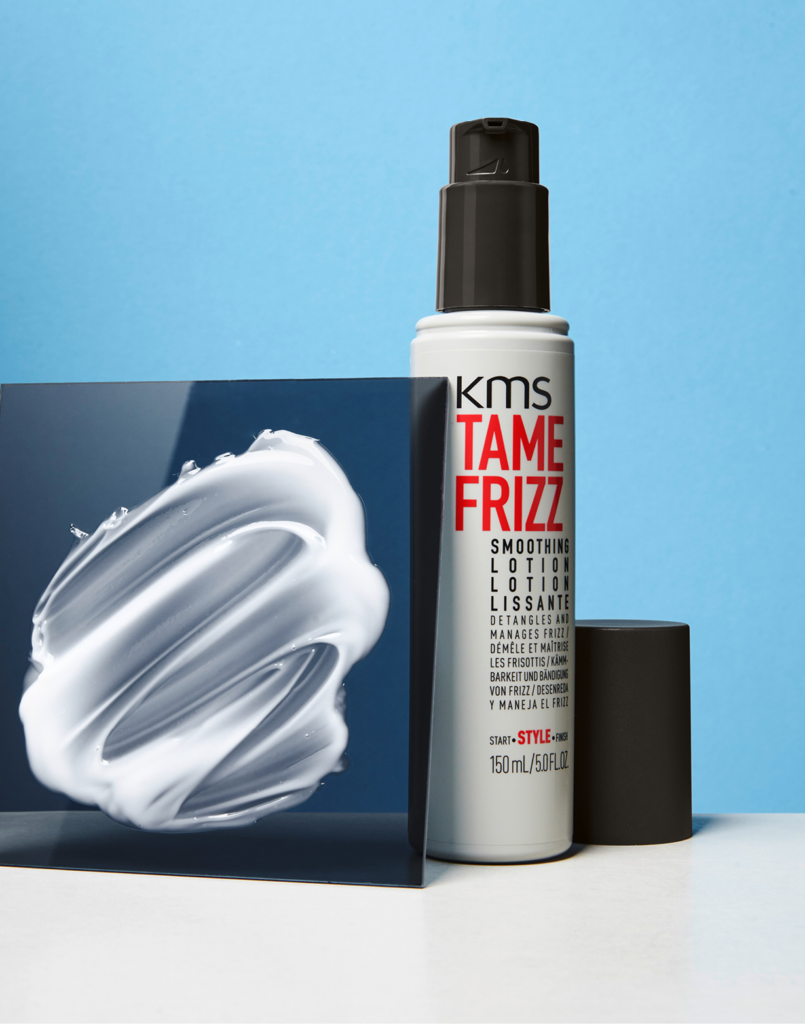
Heat Protection:
- Living Proof No Frizz Nourishing Styling Cream: Protects hair from heat damage while reducing frizz for a smooth, sleek finish.
Moisturizing Oils:
- Argan Oil – Excellent for sealing in moisture, enhancing shine, and reducing frizz, making it perfect for Afro hair types.
Lightweight Hair Creams:
- Moroccanoil Curl Defining Cream – Adds moisture and curl definition without weighing down the curls, ideal for managing frizz in humid weather.
Natural Oils:
- Coconut Oil – Helps tame frizz, adds shine, and heals damaged hair with nourishing fatty acids, keeping hair soft and manageable.
Frizz-Controlling Serums:
- IGK Crybaby Anti-Frizz Smoothing Serum: Provides smooth, frizz-free hair, helping you achieve sleek and healthy results.
These products hydrate and protect hair and effectively combat humidity-induced frizz, leaving your hair sleek, nourished, and healthy.
Conclusion
Managing frizzy Afro hair, especially in humid conditions, can be a constant challenge. The natural texture of Afro hair, combined with the moisture in the air, causes it to expand and become even more prone to frizz.
However, with the right products, techniques, and protective measures, you can maintain smooth, manageable hair even in high humidity. From selecting moisture-rich shampoos and conditioners to using anti-frizz serums and protective styles, there are numerous ways to keep your Afro hair looking its best.
Embracing a tailored hair care routine and making informed choices about styling products will help you control frizz and enhance your hair’s natural beauty.

